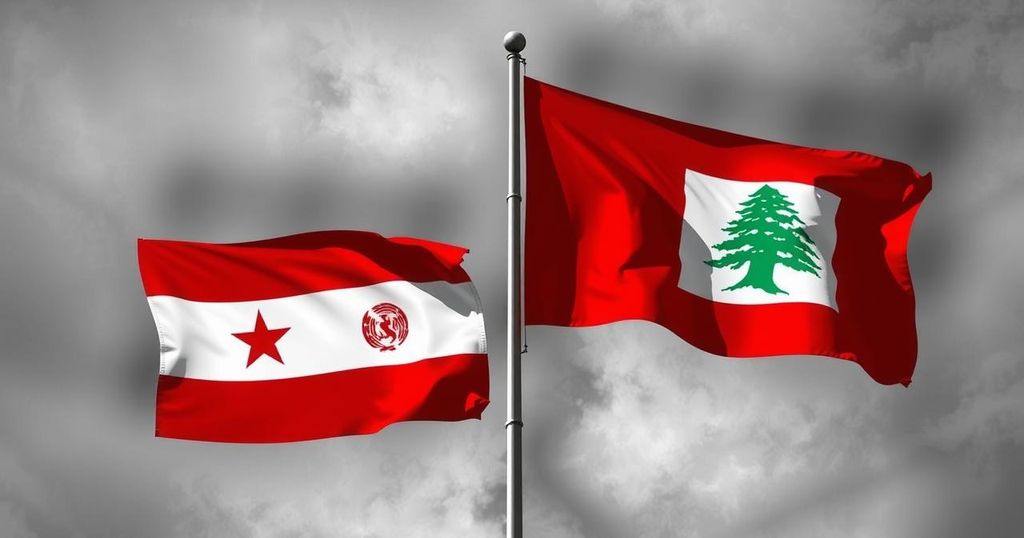Global news
ABU MOHAMMED AL - JOLANI, AHMED AL - SHARAA, AL, ASIA, BASHAR AL - ASSAD, CIVILIAN CASUALTIES, CONFLICT, EUROPE/ASIA, HAY ’ AT TAHRIR AL - SHAM, HEZBOLLAH, ISRAEL, JABHAT AL - NUSRA –, JERUSALEM DISPATCH, LEBANON, MEE, MIDDLE EAST, MIDDLE EAST AFFAIRS, NORTH AMERICA, PALESTINE, QAEDA, SYRIA, TURKEY, UNITED STATES
Fatima Khan
0 Comments
HTS Declares Syria Will Respect Lebanon’s Sovereignty and Neutrality
Hay’at Tahrir al-Sham (HTS) announced that Syria will respect Lebanon’s sovereignty and will not interfere negatively in its affairs. HTS leader Ahmed al-Sharaa assured Lebanese Druze leaders that Syria would maintain a neutral stance towards all factions in Lebanon as part of efforts to normalize relations after years of conflict. This statement comes amid a backdrop of complex historical ties and recent political developments in the region.
On Sunday, Hay’at Tahrir al-Sham (HTS) expressed that Syria would not interfere “negatively” in Lebanon’s internal matters. HTS leader Ahmed al-Sharaa, also known as Abu Mohammed al-Jolani, assured a delegation of Druze leaders, including Walid and Taymour Jumblatt, of Syria’s commitment to respecting Lebanon’s sovereignty, the integrity of its territories, and the independence of its decision-making processes. Sharaa emphasized that Syria would maintain a neutral stance towards all parties within Lebanon, acknowledging its historical role as a source of anxiety in the region.
This reassurance comes amidst ongoing attempts by HTS to mend Syria’s relations with neighboring countries following over a decade of civil conflict. The complicated history shared by Syria and Lebanon is marked by Syrian military presence in Lebanon from 1976 until 2005, a situation that has fostered enduring suspicions and concerns.
Lebanon has also experienced an influx of Syrian refugees, driven by the violence in Syria since 2011, complicating the social and political landscape further. Druze leader Walid Jumblatt’s visit to Damascus signifies a potential thaw in relations between Lebanon and the new Syrian leadership. His delegation, which consisted of various Lebanese Druze leaders, marked a notable step in diplomatic engagement post-civil war.
However, the Druze community in Syria has faced challenges, including persecution from various groups, heightening their vulnerabilities. It is crucial to note that HTS, previously known as Jabhat al-Nusra, has a controversial history, including sectarian violence, raising further questions regarding the group’s intent and the sincerity of its commitment to stability in the region.
The relationship between Syria and Lebanon has been characterized by a complex intertwining of affairs, predominantly due to Syria’s historical military occupation of Lebanon from 1976 to 2005. This period significantly influenced the political dynamics in Lebanon, contributing to the mistrust between the two nations. The Syrian civil war, which commenced in 2011, has caused an unprecedented movement of refugees into Lebanon, further complicating the internal and external challenges faced by both countries. Recently, Hay’at Tahrir al-Sham, a prominent rebel group in the Syrian conflict, has made attempts to reposition itself and reduce tensions with Lebanon as it seeks to normalize relationships after years of instability.
In summary, Hay’at Tahrir al-Sham’s declaration of Syria’s intent to refrain from negative interference in Lebanon highlights a significant shift in the regional dynamics post-civil war. As Syria navigates its relations with Lebanon, the assurances provided by HTS represent both a cautious approach to regional sovereignty and a potential beginning of a diplomatic engagement. However, the group’s historical actions and the complex backdrop of Lebanese-Syrian relations continue to warrant scrutiny as both nations seek stability and redefined relations.
Original Source: www.middleeasteye.net




Post Comment